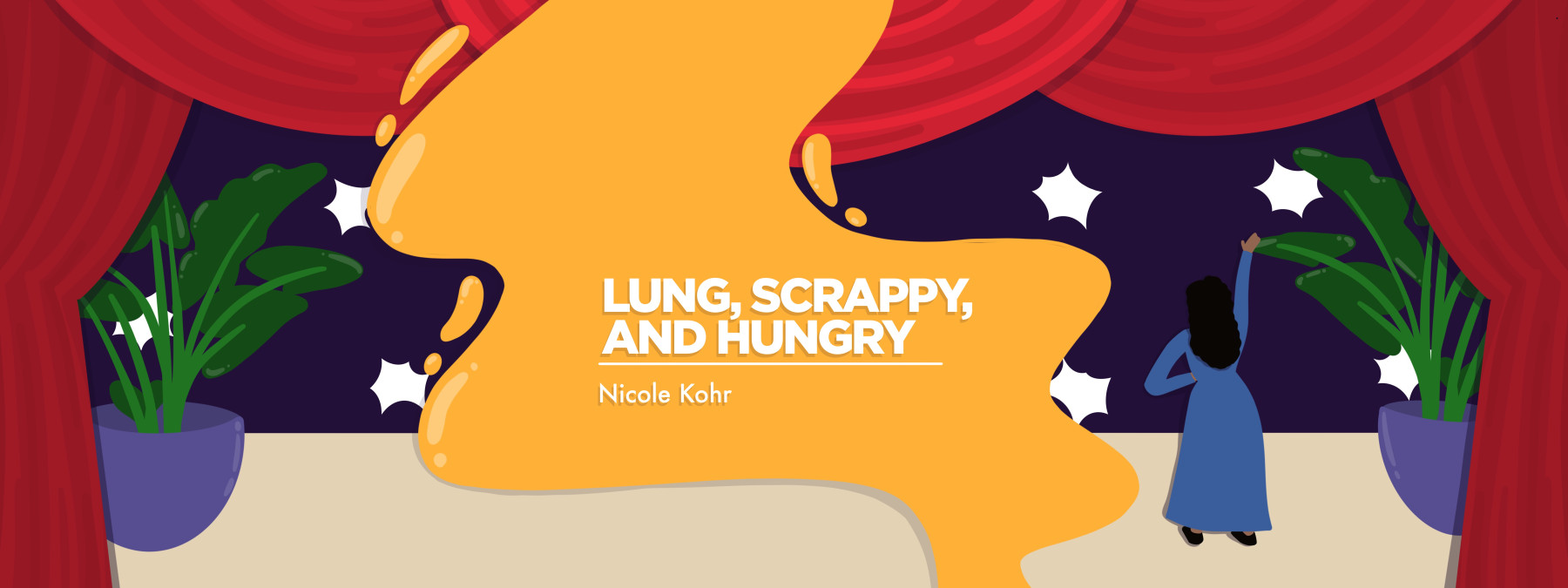How I Turned My Cystic Fibrosis Advocacy Into Part of My Career
Written by |

“Something Rotten!” is one of my favorite Broadway shows. I wrote about this musical comedy before in a piece titled “‘Welcome to the Renaissance’: A New Beginning for CF Patients.” This week, I wanted to use the show to discuss a different subject: What happened when my passion became my career?
My first love was musical theater. Next, I fell in love with writing, followed by advocacy for cystic fibrosis (CF). I never worried about falling out of love with the theater, writing, or advocacy. They’ve always fulfilled my need for a creative outlet, my desire to help others, and my purpose. Now that I’ve combined the three into a career, however, I worry that I’ll grow to dislike them.
What’s there to dislike about advocacy? It’s extremely fulfilling, especially when I can use storytelling as a method to bond with others. Still, there are cons to complete transparency. I must relive my trauma every day. I tend to tell the same stories over and over, and I grow tired of my own words. Even after I remind myself that some people haven’t heard my story yet, my rehearsed lines lose impact, and my inflection lacks passion.
All of this made me think of the song “Hard to Be the Bard,” which is sung by the character William Shakespeare, a narcissistic storyteller who prefers his fame over his writing. At least, that’s the way he’s depicted in the musical. Shakespeare begins the song by telling the audience about his packed schedule.
“There’s lunches and meetings and poetry readings and endless interviews”
It’s true. I want to tell my story because I think it’s comforting to hear a like-minded individual’s experience. There are also falsehoods and outdated truths in statistics, so a patient’s experience is often more trustworthy. To ensure my story reaches a wide audience, though, I must tell my story on numerous platforms.
I interview, live on social media, friends I’ve connected with through direct messages. Companies use virtual platforms like Zoom to welcome me after several email exchanges. I write articles and film videos. Press releases explode from my outbound mail like unstable fireworks. Long story short, audiences rarely come to the advocate. The advocate must go to them.
“Then it’s back to my room when I resume/ my attempt to write a hit”
I enjoy reaching out to my audience, but that’s only one of the hats I wear. The other hat comes with a feather quill: a writer’s cap. I could send out a million press releases about my musical, but if there’s no script, there’s nothing to advertise. Between the interviews, I need time to write the columns, blogs, lyrics, and children’s books.
“There’s only so much of me to go around”
Next comes the trick of juggling the projects. Have you ever been so involved in a project that you forgot to eat or use the bathroom? I have. Advocacy demands time and concentration, but I don’t want to do it at the expense of my health. I used to say “yes” to anyone who asked for a collaboration, in turn lessening my ability to give 100% to each project.
I’ve gotten much better at divvying up my time. I try to focus on three projects at a time instead of nine. Most importantly, I try to factor in my treatment schedule and rest days. It’s not an exact science, though, and sometimes I still end up overbooking myself.
“But somebody’s gotta do it”
There are days when I say, “I need a break from social media,” but that breeds guilt. Some 10% of my community hasn’t benefited from a drug like Trikafta (elexacaftor/tezacaftor/ivacaftor). Bilateral lung transplant recipients like me remain desperate for the promise of an elongated life, and dozens of my friends have passed well before their 21st birthdays. I can’t stop delivering products that might help cure cystic fibrosis.
All of this prompts the question: Why do I still advocate? In short, writing is cathartic. By temporarily ignoring the fact that writing is my job, I reap the benefits as a patient myself. Suddenly, truths and themes leap from the page. I enjoy having intimate conversations with new friends. I love connecting with talented artists after I explore a new children’s book concept. My passion affects my community. Allowing it to become my nine-to-five simply required boundaries for the sake of endurance.
Pursuing a creative career can come with hardships, but burnout and resentment don’t have to be inevitable. When audiences ask, “What’s it like when your passion turns into your career?” I look down at my new lungs. I’m reminded that new lungs don’t come with second chances. More importantly, I remember how lucky I am to have them.
“It’s sexy, but it’s hard.”
Note: Cystic Fibrosis News Today is strictly a news and information website about the disease. It does not provide medical advice, diagnosis, or treatment. This content is not intended to be a substitute for professional medical advice, diagnosis, or treatment. Always seek the advice of your physician or other qualified health provider with any questions you may have regarding a medical condition. Never disregard professional medical advice or delay in seeking it because of something you have read on this website. The opinions expressed in this column are not those of Cystic Fibrosis News Today or its parent company, Bionews, and are intended to spark discussion about issues pertaining to cystic fibrosis.








Leave a comment
Fill in the required fields to post. Your email address will not be published.